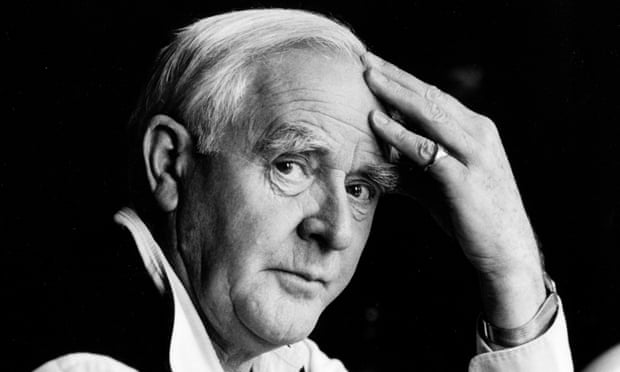British novelist, David Cornwell, better known by his pen name John le Carre, has died at the age of 89, his agent confirmed on Sunday night.
The writer became widely popular for his thriller novels, which touched on his real-life experiences as a spy during the Cold War and his third novel “The Spy Who Came in from the Cold” made him a bestseller across the globe.
His agent, Jonny Geller, described him as “an undisputed giant of English literature.
“He defined the Cold War era and fearlessly spoke truth to power in the decades that followed.’’
Geller said he had lost “a mentor, an inspiration and most importantly, a friend.
“We will not see his like again.’’
Cornwell died on Saturday as a result of a short bout of pneumonia.
His family thanked NHS staff who cared for him at a Cornwall hospital and said they “all deeply grieve his passing’’ in a statement.
“David is survived by his beloved wife of almost 50 years, Jane, and his sons Nicholas, Timothy, Stephen and Simon,’’ the statement read.
Cornwell was born in 1931 in Dorset, England.
His mother was an actress who left the family when he was five years old.
His father was a con artist who spent time behind bars between money-making schemes, and later on, sometimes pretended to be his famous writer son in order to impress women.
Cornwell studied in Bern, Switzerland, and Oxford, England, before serving in the British intelligence services during the Cold War.
He decided to publish his first novel “Call for the Dead” in 1961 under a pseudonym.
He later quit the service and eventually went on to write 25 novels including “Tinker Tailor Soldier Spy” and “The Night Manager”, some of which were adapted to film.
A central character was the disillusioned master spy George Smiley, who was betrayed by his wife and suffered from the ruthless reality of his line of work.
The fall of the iron curtain changed the writer’s perspective: his books shifted to be about arms dealing, the machinations of pharmaceutical corporations, the war on terror or the Russian mafia.
His peers were among those who paid tribute in social media posts.
“This terrible year has claimed a literary giant and a humanitarian spirit,’’ Stephen King wrote on Twitter.
Robert Harris, one of Britain’s best-known historical fiction writers, called him “one of the great post-war British novelists and an unforgettable, unique character’’.
British historian and author, Simon Sebag Montefiore, praised him as a “titan of English literature up there the greats, creator of his own world of masterpieces, studies of betrayal honour character idealism and power that were also spy thrillers’’ in a tweet.
Almost a decade ago, Cornwell reflected on turning 80 in an interview with dpa.
“I’ve had an incredibly good life, an exciting one,’’ he said in 2011.
“I find it very difficult to read my own stuff, but I look at it with satisfaction.
“So if it were over very soon, I would not feel anything except gratitude.
“To have had my life and be ungrateful for it would be a sin.’’
